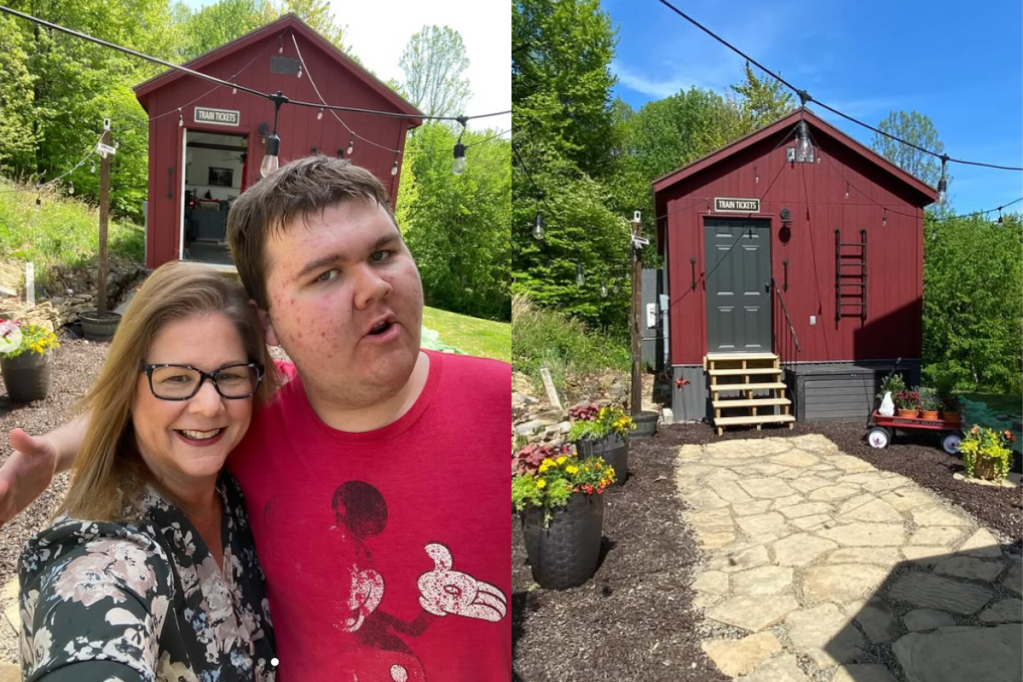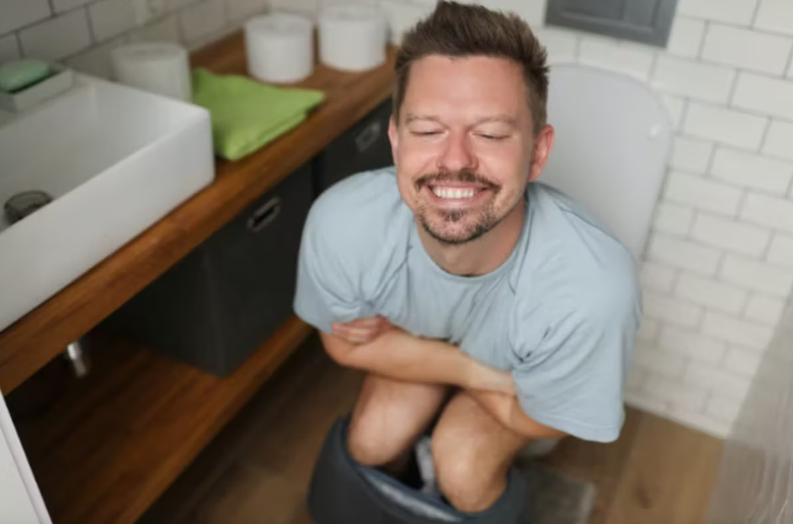Tiny houses are an incredible living option. Compact yet complete with everything needed to live a full, independent life, living in a tiny home has been a game changer for Bobby, an autistic 21-year-old in West Virginia whose parents built him his own train-themed tiny home in their backyard.
Bobby, who has intellectual autism, a seizure disorder, and OCD, has been living in the home for over nine months. His parents have documented his tiny home living on TikTok, where they share what life is like for Bobby and the positive impact it has had in his life and theirs.
“Our solution to give some independence to our 20 year old son with profound autism is this backyard tiny home,” his mother wrote in the video.
In the video, she gives a full tour of the exterior and interior of Bobby’s tiny home. It is a 12 foot by 30 foot home that has enabled Bobby more freedom and independence.
But it’s also been a game changer for her life as the parent of a child with autism as well. In another video, she explained the profound impact Bobby’s tiny house move has had. “Our situation was dire. OCD had taken over every part of our life,” she shared in a video explaining why they built Bobby his tiny house. “I told my husband, ‘I’m done. I cannot do this,’” adding that their lives had become incredibly chaotic when the tiny house idea just came to her.
She continued by sharing, “I’ve let go of the control I’ve needed to have over his life for the past 20 years…from what I’m getting from his reaction of living on his own in that tiny home is that I think that control was so overwhelming for him. I know it was overwhelming for me. I didn’t know how to deal with any of it.”
On top of helping ease her struggles with control, the tiny house has also helped Bobby immensely. “Bobby has been living in his tiny house for 9 months. It’s been 9 months with no meltdowns, no aggression, 9 months of him eating new foods with ease. He’s happier, my husband and I are happier. By far, the best decision we’ve ever made!” she wrote in the caption of another video.
Although Bobby now has his own space, she notes that his tiny home doesn’t have everything a normal “house” would, including things like a stove, a washer and dryer to do laundry, or a TV. She also adds that having security cameras inside and outside of the home has been vital to making sure Bobby is safe in his new place.
And they continue to work on daily living skills, like taking out the garbage. “Working on daily living skills has been so much easier to do in his tiny house. It’s his space and he’s much more cooperative in doing these tasks,” she wrote.
Bobby’s viewers absolutely love following his tiny home journey and personal growth through his independent living.
“As a momma of an autistic son, this melts my heart,” one wrote.
“This is a huge accomplishment for an adult on the spectrum! Giving him independence and his own space is amazing!!!❤️” said another.
Another viewer wrote, “His own space, his own choices and agency. That’s so regulating!”































